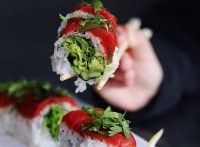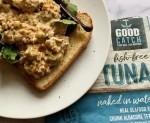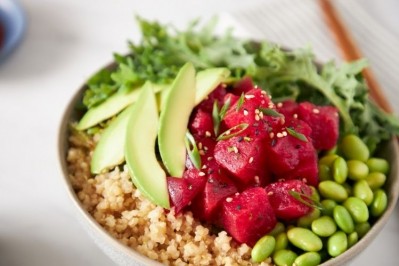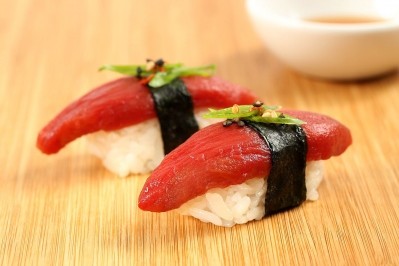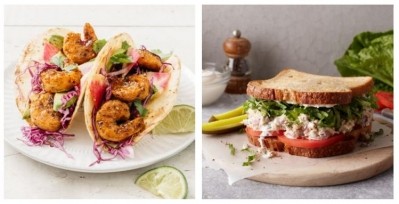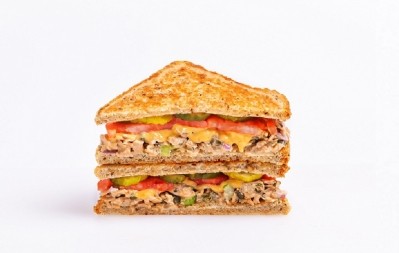Ocean Hugger Foods: ‘We will be exploring paths to relaunch bigger and better than ever’
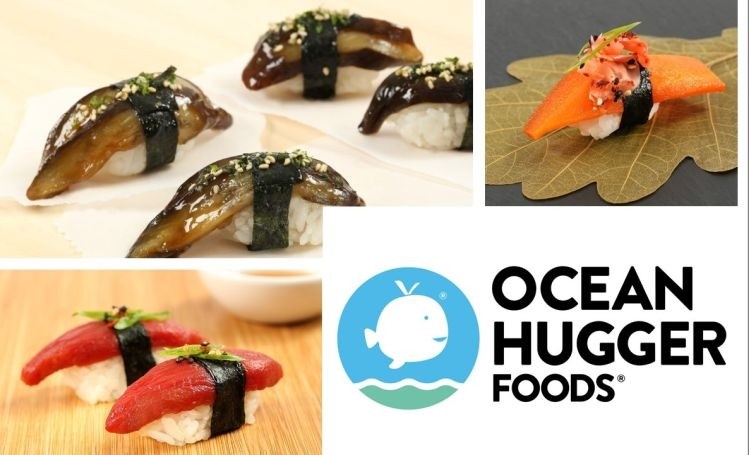
Founded in 2016 by Certified Master Chef James Corwell and David Benzaquen, who has been working with plant-based brands for 10 years, New York-based Ocean Hugger Foods occupied a distinct niche in the plant-based food space, using vegetables as its starting point (tomatoes for its Ahimi raw ‘tuna,’ and eggplants for its Unami ‘eel’) rather than soy, pea or wheat protein.
Up until COVID-19 struck, things were looking very promising for the company, which debuted in Whole Foods in November 2017, and had started picking up some sizeable accounts over the past couple of years, Benzaquen told FoodNavigator-USA.
“We were expanding really quickly, but we were 100% selling to foodservice, so even when we were in Whole Foods or other retailers, we were selling in their sushi bars. And more than any other part of foodservice, sushi was probably hit the hardest [when COVID-19 struck], because people were terrified of eating raw animal protein, so many of the largest sushi and poke chains went out of business, and they were our huge clients.”
‘We suddenly had all these commitments and guaranteed payments, and no sales'
Ocean Hugger Foods was also scaling operations very fast, which carried with it greater commitments as regards production runs (Ocean Hugger worked with co-packers in Mexico and Thailand, where its core ingredients are sourced), and procurement, said Benzaquen.
”Just to ensure we had enough [of the particular variety of] tomatoes, we had to invest in contracts that would guarantee certain volumes, and you’re on the hook for paying for that whether people are buying your products or not. We were also about to double in size with a single contract [when COVID-19 hit].
“So we suddenly had all these commitments and guaranteed payments, and no sales. In the worst month of COVID our sales dropped down to just five thousand a month, and we’re a young company that had raised a significant amount of money on convertible notes that are debt until they become equity, so suddenly you’re out of cash…
“The only thing we could do was pause operations.”
‘The good news is that it’s not over’
Since then, however, there have been some positive developments that should enable the business to relaunch next year with a broader array of products, said Benzaquen, although he can’t go into details at this stage.
“The good news is that it’s not over. We intend to re-enter the market and are exploring the best way to do so in a post-COVID world.”
Ocean Hugger Foods' first product Ahimi was made from fresh tomatoes, gluten-free soy sauce, filtered water, sugar and sesame oil, and tastes uncannily like raw tuna, said co-founder and CEO David Benzaquen.
“This is not an extruded protein isolate; we start with fresh Roma tomatoes. There’s a complex mechanical proprietary process we use with all our vegetables to eliminate the flavor – the acidity in tomatoes, the sweetness of carrots and the bitterness of the eggplant - and create a firmer texture that mimics the experience of biting into raw fish, and from there we can layer on any flavor we want. We sell it frozen and chefs can thaw and cut it the same way they would raw fish."
Plant-based seafood
Benzaquen, who recently sold a brand management and marketing agency for plant-based CPG companies called PlantBased Solutions, and has worked with 150+ plant-based companies, said the plant-based seafood industry was still in its relative infancy, with many brands still reaching vegans and vegetarians rather than mainstream meat/fish eaters.
That said, given the laundry list of problems linked to seafood - from overfishing to inhumane slaughter, contaminants, pollution, plastic, fraud, mislabeling, illegal labor practices, habitat damage, and bycatch – there is a pretty strong case for finder greener, cleaner, and kinder alternatives, whether plant-based or cell-based, he argued.
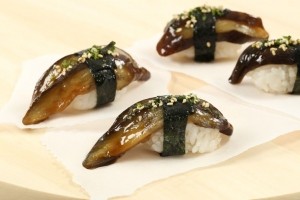
“If you are looking at this in terms of animal welfare or sustainability, seafood is one of the most urgent industries to disrupt."
The future of food production
So what will the market look like in future?
There’s room for multiple approaches including plant-based alternatives, cell-cultured foods from real animal cells grown outside the animal, and products made via microbial fermentation, said Benzaquen.
And while some people may have higher comfort levels with some of these technologies than others, many will likely overcome their initial hesitation if the products truly deliver, he said, noting that while Americans might be in love with animal products, this doesn’t mean they’re in love with factory farming.
COVID-19 and animal agriculture
COVID-19, meanwhile, has shone a light on the role of industrialized animal agriculture in the spread of animal and human pandemics, he said, while there is growing awareness that the use of antibiotics for growth promotion or improved feed efficiency in farm animals can contribute to the emergence of antibiotic-resistant bacteria that may be transferred to humans, reducing the effectiveness of antimicrobial drugs.
And while there have been attempts to present next-generation plant-based alternatives to meat and dairy products as “processed and scary,” it’s worth reminding people that modern, industrial-scale animal agriculture bears little resemblance to the bucolic images of farming often presented on food packaging, he said.
“Just show people truthful pictures of battery chickens or lagoons of pig waste [emanating from industrial-scale pig farms].”
Plant-based seafood: Players in the plant-based seafood market include Good Catch, Nestlé (which recently entered the market in Europe with a tuna alternative), New Wave Foods, Atlantic Natural Foods (TUNO), Sophie’s Kitchen, Gardein, May Wah and Quorn, while Impossible Foods also has products in the pipeline.
Cell-cultured seafood: Several startups have also emerged from stealth mode in the nascent cell-cultured seafood industry, including Wild Type, Finless Foods, Shiok Meats, and BlueNalu.
